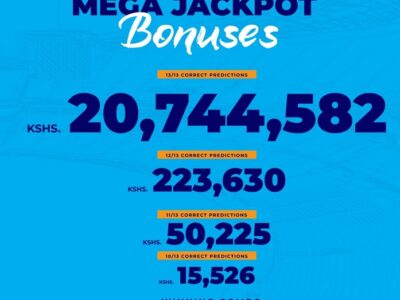Why a single income is no longer the dream
In Kenya’s urban and peri-urban areas, a silent shift is taking place. Young professionals, recent graduates, and even high school students are rejecting the traditional notion of a 9-to-5 job as their primary income source. Instead, they are embracing a multi-earning lifestyle — one that blends formal work with side gigs, remote freelance tasks, reselling goods online, and monetizing hobbies.
The hustle economy is not new. What’s changing is the sophistication with which Kenya’s youth are navigating it. From coding bootcamps in Kisumu to handmade fashion brands in Mombasa, this generation isn’t just surviving — it’s building layered income ecosystems from scratch.
Digital access is the great equalizer
The affordability of internet bundles and smartphones has made it easier than ever to experiment with business models. With just a mobile device, Kenyans can open TikTok shops, market products on Instagram, take international writing gigs via Upwork, or deliver food through ride-hailing apps. This technological accessibility has fueled the emergence of what some call the “Wi-Fi economy” — one that transcends traditional employment structures.
For many, financial freedom doesn’t come from a single job but from weaving together multiple micro-streams of revenue. It’s a survival tactic — but also a strategy for autonomy.
When side gigs become central
Unlike past generations where side hustles were fallback options, today they are often the core. A trained teacher may earn more from hosting weekend sewing workshops. A junior accountant might run a successful YouTube channel focused on campus life. For these young Kenyans, the question isn’t “What do you do for a living?” but “How many ways do you earn?”
The line between passion and profession is also blurring. It’s not uncommon to find people making money from baking, podcasting, digital art, or even reviewing local eateries on social media.
The informal is going formal — and global
What started as informal hustles are slowly becoming structured businesses. Young entrepreneurs are registering their enterprises, hiring peers, and seeking funding from local accelerator programs or even diaspora investors.
At the same time, global platforms are opening up income pathways. Football enthusiasts, for instance, increasingly explore prediction communities and fan analytics.
More information can be found at: http://footyguru365.com
Such intersections of global engagement and local relevance are redefining the very nature of what it means to earn in Kenya.
Challenges behind the glamor
Beneath the polished social media posts and entrepreneurial buzz lies a hard truth: the hustle economy is exhausting. Without labor protections, health insurance, or steady pay, these multi-earners face unpredictability and burnout.
Yet, many prefer this uncertain autonomy over the rigidity and often low pay of formal employment. They are driven by ambition, necessity, and an unshakable belief that they can create their own luck.
Government and institutions catching up
Public institutions are beginning to acknowledge this shift. County governments and national agencies now offer grants for small business ideas, vocational digital training, and reduced-cost licenses for micro-entrepreneurs. But bureaucracy and lack of outreach remain hurdles.
There’s also a growing call for financial products tailored to the hustle economy — such as flexible savings plans, micro-insurance, and tax structures that don’t penalize the self-employed.
The future belongs to layered ambition
Kenya’s hustle economy isn’t just a phase — it’s a philosophy. It teaches resourcefulness, digital fluency, and the ability to pivot quickly. It thrives on community support, social media visibility, and sheer resilience.
As the global economy evolves, Kenya’s youth may be ahead of the curve — not because they had more, but because they built more with less. Their version of success isn’t linear; it’s circular, adaptive, and self-made.













